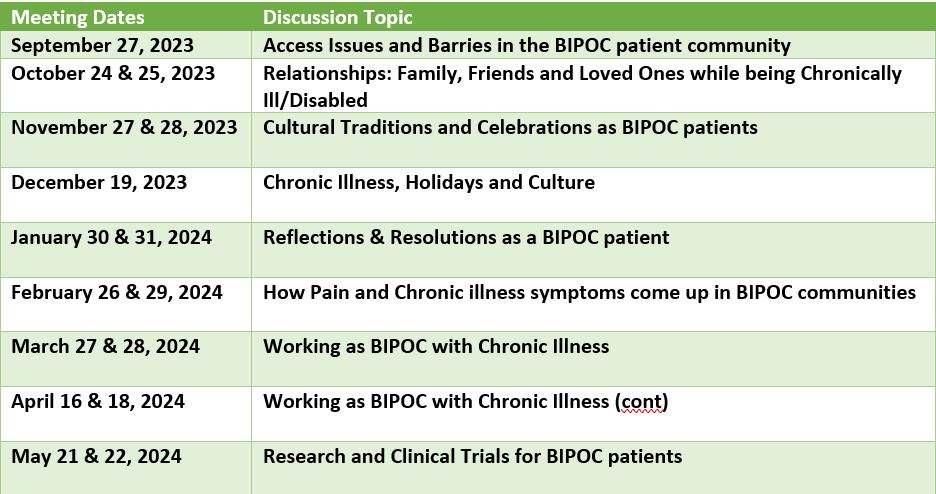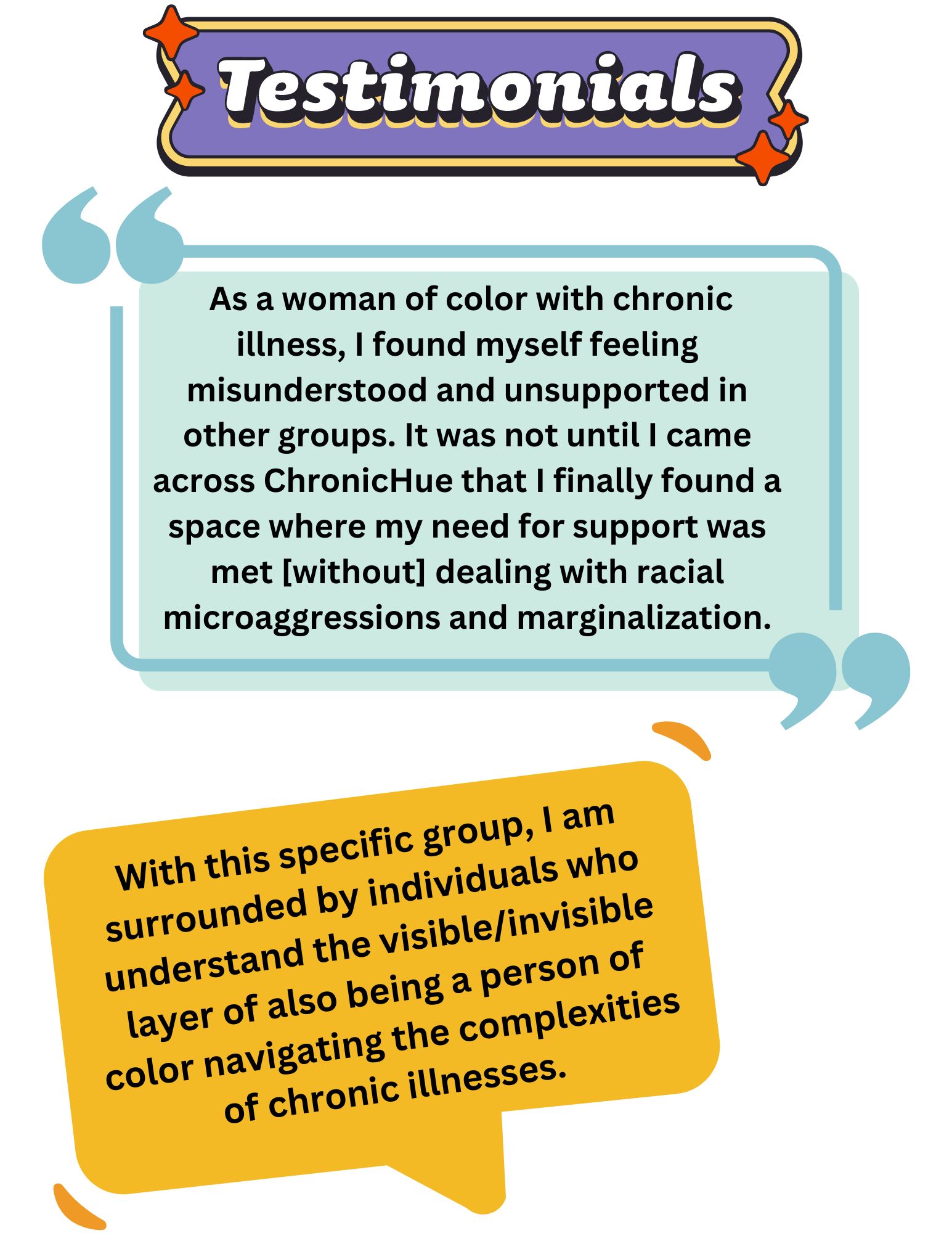Session Information
Date: Saturday, November 16, 2024
Title: Patient Perspectives Poster
Session Type: Poster Session A
Session Time: 10:30AM-12:30AM
Background/Purpose: As someone from the Black, Indigenous, and People of Color (BIPOC) community living with rheumatic conditions, I have experienced firsthand many challenges that people from my community continue to encounter because of healthcare disparities. These inequities often complicate our health journeys, delaying diagnosis and access to treatment, often leading to worse outcomes. Besides physical symptoms, rheumatic diseases frequently bring mental health issues like anxiety and depression, which can be more pronounced for BIPOC communities due to these inequities.
My journey started with a fibromyalgia diagnosis in 2016, followed by rheumatoid arthritis in 2017. I needed a supportive community of individuals with similar experiences to help manage my condition.
Intervention: Attending support groups and being part of a community with people who have shared experiences based on their conditions and the communities they come from helped me and others feel less isolated. Often, I was one of the few BIPOC attendees, a sentiment echoed by other BIPOC patients, who also reported microaggressions and racism in these spaces. To address these unique needs, the Global Healthy Living Foundation (GHLF) supported the creation of ChronicHue in 2023, a global online community empowering BIPOC living with rheumatic disease and chronic illness. ChronicHue provides a supportive space for BIPOC patients to connect with others who understand their racial and cultural experiences related to illness and the health system.
Maintenance: Since its launch, ChronicHue has held 20 meetings connecting patients across 4 countries. Monthly discussion topics guide conversations, providing validation and a sense of belonging. Many members, including myself, expressed that this was their first experience in a group specifically designed for BIPOC with rheumatic disease and chronic illness. By acknowledging gaps such as lack of diversity, healthcare disparities, and diagnosis delays during these meetings, this space allows patients like myself to feel seen and heard while also encouraging us to stay on top of our health.
Quality of Life: For many BIPOC individuals with chronic illness, BIPOC-only spaces are crucial for fostering community, building trust, and addressing complex topics often challenging in non-BIPOC spaces. Mental health issues are prevalent among Americans of all racial and ethnic backgrounds, with rates between 13%-25%. According to Mental Health America, 17% of Black Americans, 15% of Latinx/Hispanic Americans, 13% of Asian Americans, 23% of Indigenous/Native/Alaskan, and 25% of Multiracial Americans live with mental health issues compared to 23% of white Americans. Participating in ChronicHue meetings has improved my mental health and reduced the isolation that often accompanies living with rheumatic conditions and chronic illness. It remains incredibly therapeutic to have a space where BIPOC can share their health journeys and heal, while addressing the intersection of race, ethnicity, and culture. ChronicHue discussions inform GHLF’s support resources and activities for BIPOC communities. Based on some discussions, GHLF has developed tailored content for BIPOC communities like this one: Wash Day & Chronic Illness.
To cite this abstract in AMA style:
Shaw S, Summers J. Healing Together: The Role of Black, Indigenous and People of Color (BIPOC) -Only Chronic Illness Spaces in Comprehensive Care [abstract]. Arthritis Rheumatol. 2024; 76 (suppl 9). https://acrabstracts.org/abstract/healing-together-the-role-of-black-indigenous-and-people-of-color-bipoc-only-chronic-illness-spaces-in-comprehensive-care/. Accessed .« Back to ACR Convergence 2024
ACR Meeting Abstracts - https://acrabstracts.org/abstract/healing-together-the-role-of-black-indigenous-and-people-of-color-bipoc-only-chronic-illness-spaces-in-comprehensive-care/


